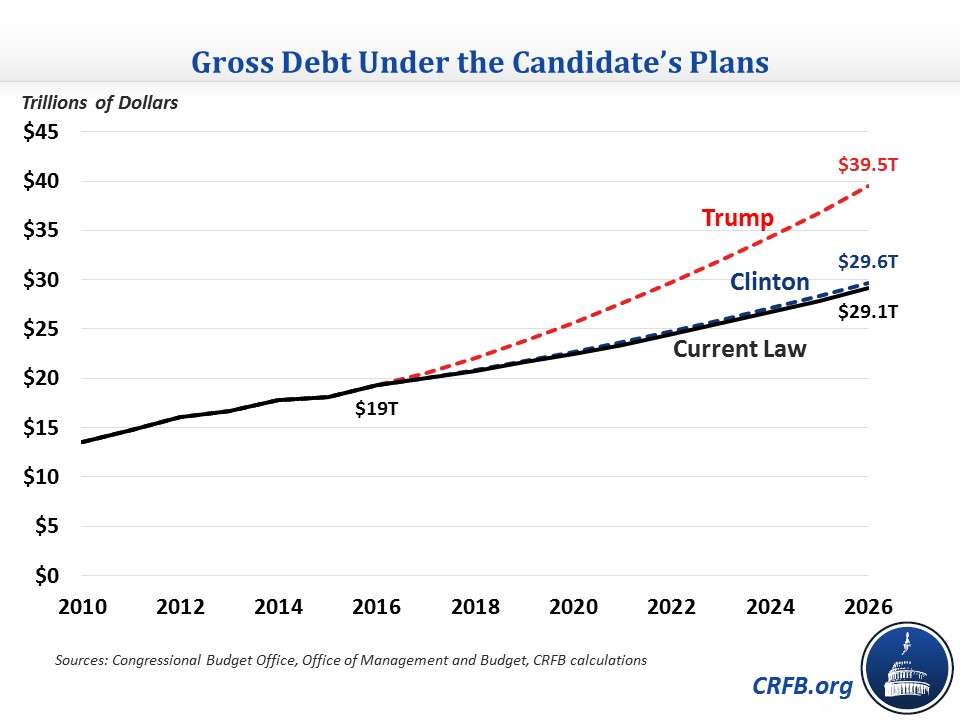Neither Clinton Nor Trump Would Reduce the National Debt
Clinton's policies would increase the debt less-but would still leave the budget on an unsustainable path.

Tonight's Democratic National Convention featured a brief video starring former Obama administration economic adviser Gene Sperling. Sperling brought up a topic we haven't heard a whole lot about at this year's DNC: the federal debt. His point was that GOP presidential nominee Donald Trump would be far worse for the national debt than Hillary Clinton.
By all accounts, Sperling was right: Although Trump's economic plans are frustratingly vague and difficult to pin down, every credible attempt to estimate has found that his plans would massively increase total debt.
Just today, for example, the Committee for a Responsible Federal Budget (CRFB) estimated that under Trump's plans, debt held by the public would rise from $14 trillion now to a little more than $35 trillion over the next decade. Gross national debt—the measure more commonly used—would rise from about $19 trillion now to $39.5 trillion by 2026.
This isn't surprising. Trump has expressed concern about federal debt levels, but his plans to reduce debt have never added up. His proposed Social Security reform would attempt to cover a $150 billion fiscal gap by cutting waste, fraud, and abuse—which only amounts to about $3 billion. Trump has also suggested that the government could save $300 billion through savings in a program that only spends $78 billion. It's total nonsense, and Trump shouldn't be trusted at all on the issue.
But here's the thing: Hillary Clinton would also let the debt rise substantially. Under her plans, according to the same CRFB analysis, debt held by the public would rise from $14 trillion to $23.9 trillion over the next decade. Gross national debt would rise from $19 trillion to more than $29 trillion.

It's true, as the CRFB report shows, Clinton's increases would track pretty closely with debt increases that already expected under current law—increasing it only slightly over today's trajectory. That's better than what we could expect under Trump, but it's far from what's necessary. The nation's debt trajectory is, in its current state, unsustainable in the long term.
In a report on the long-term debt issued earlier this month, the Congressional Budget Office laid out the stakes if the debt trajectory isn't significantly altered: "Large and growing federal debt over the coming decades would hurt the economy and constrain future budget policy. The amount of debt that is projected in the extended baseline would reduce national saving and income in the long term; increase the government's interest costs, putting more pressure on the rest of the budget; limit lawmakers' ability to respond to unforeseen events; and increase the likelihood of a fiscal crisis." Clinton's plans would merely leave us on the same troubled fiscal path we're already on.


Show Comments (39)